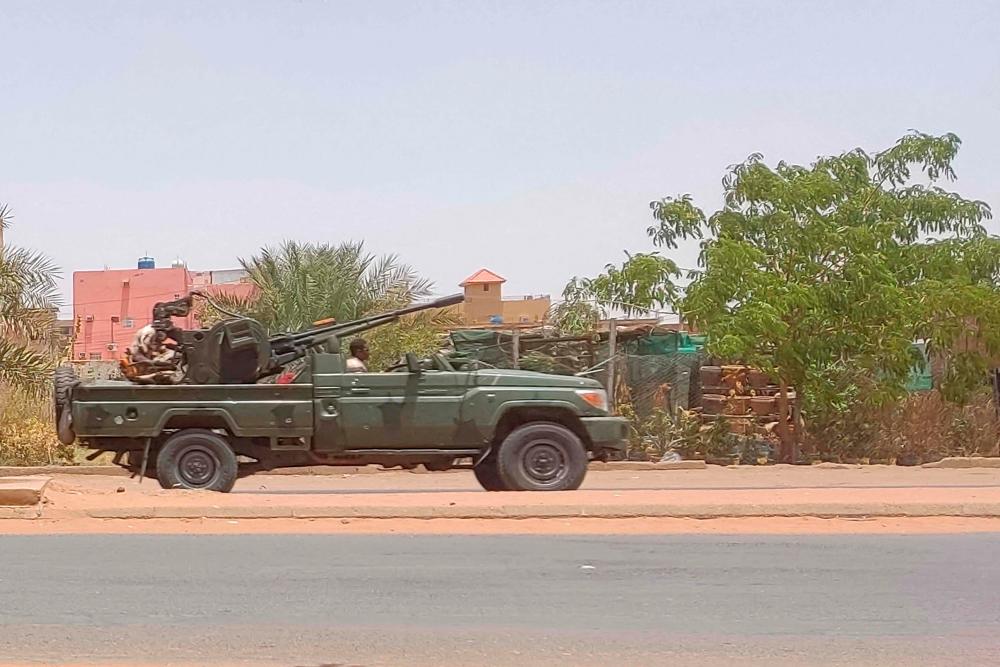KHARTOUM: Sudan's warring sides on Thursday accused each other of being behind breaches of the latest ceasefire that was negotiated by the US and Saudi Arabia, now in its third day.
The one-week truce was violated only minutes after it came into effect on Monday night, with residents of the capital Khartoum reporting air strikes and artillery fire shaking the city.
Breaches have since persisted of the ceasefire agreement, which is meant to allow for much-needed humanitarian aid to reach war-ravaged parts of the northeast African country.
It is the latest of a series of truces that have all been systematically violated.
Since April 15, Sudan's capital and other parts of the country have been gripped by brutal urban warfare between the regular army, the Sudanese Armed Forces (SAF), and the paramilitary Rapid Support Forces (RSF).
But though the current ceasefire has been violated, it has allowed for a lull in fighting that has seen frightened residents cautiously venture out of their homes, some for the first time in weeks.
Many have gone out for supplies of food and water or to seek much-needed medical attention after nearly six weeks of war that have sharply depleted vital supplies and pushed the healthcare system to the brink of collapse.
In a statement issued late Wednesday, the RSF, which is led by Mohammed Hamdan Daglo, sought to place the blame for ceasefire breaches on the army led by Sudan's de facto leader Abdel Fattah al-Burhan.
The army “launched a series of unwarranted attacks today”, the RSF said, adding that “our forces decisively repelled these assaults”.
“Our forces successfully shot down a SAF MiG jet fighter,“ it said, reiterating however that it remained “committed to the humanitarian truce” and called on the “aggressors to respect the ceasefire”.
The army responded Thursday morning, saying it had “countered an attack on armoured vehicles by the militias of the Rapid Support Forces in a clear violation of the truce”.
The United States and Saudi Arabia, which brokered the ceasefire, on Wednesday pointed to reports “indicating that both sides violated the agreement” but said “fighting in Khartoum appeared to be less intense”.
'Calamitous failure'
But desperately needed aid has yet to reach the capital despite the brief lull.
The conflict has so far killed over 1,800 people, according to the latest figures from the Armed Conflict Location and Event Data Project.
More than a million Sudanese people have been displaced, including 300,000 who have fled to safety in neighbouring countries, according to the United Nations.
Conditions have been particularly alarming in the western region of Darfur, already ravaged by a conflict that erupted in 2003 and saw former autocrat Omar al-Bashir unleash the feared Janjaweed militia to crush a rebellion by ethnic minority groups.
The RSF are descendants of the Janjaweed.
The UN’s refugee coordinator in Sudan, Toby Harward, on Thursday said the town of Zalengei in Central Darfur state “has been under siege by armed militias for the last days”.
Numerous facilities “have been attacked and looted, civilians are unable to seek medical care as healthcare facilities are targeted, and gangs on motorcycles intimidate government workers and restrict civilian movements”, he added.
Representatives of the warring Sudanese generals have since early May been involved in negotiations in the Saudi city of Jeddah on the Red Sea.
But analysts have repeatedly warned that the two generals are likely prepared for a prolonged conflict.
Sudan expert Alex de Waal described the conflict as being the result of a “calamitous failure of diplomacy”.
Burhan and Daglo had in 2021 staged a coup that unseated a civilian transitional government but later fell out in a bitter power struggle.
The latest point of contention was over the integration of the RSF into the regular army -- a key condition to resume the transition to democracy that was put in place after Bashir's 2019 ouster but derailed by the 2021 coup. - AFP














